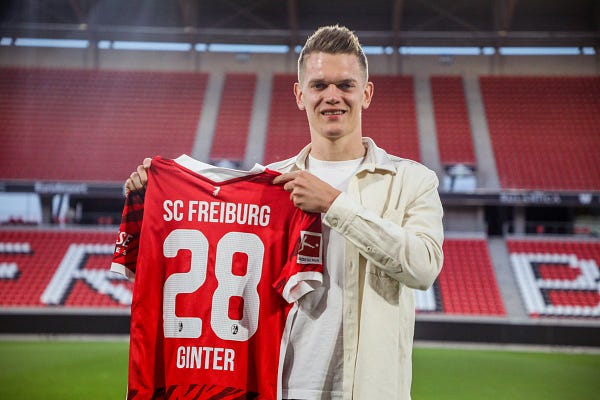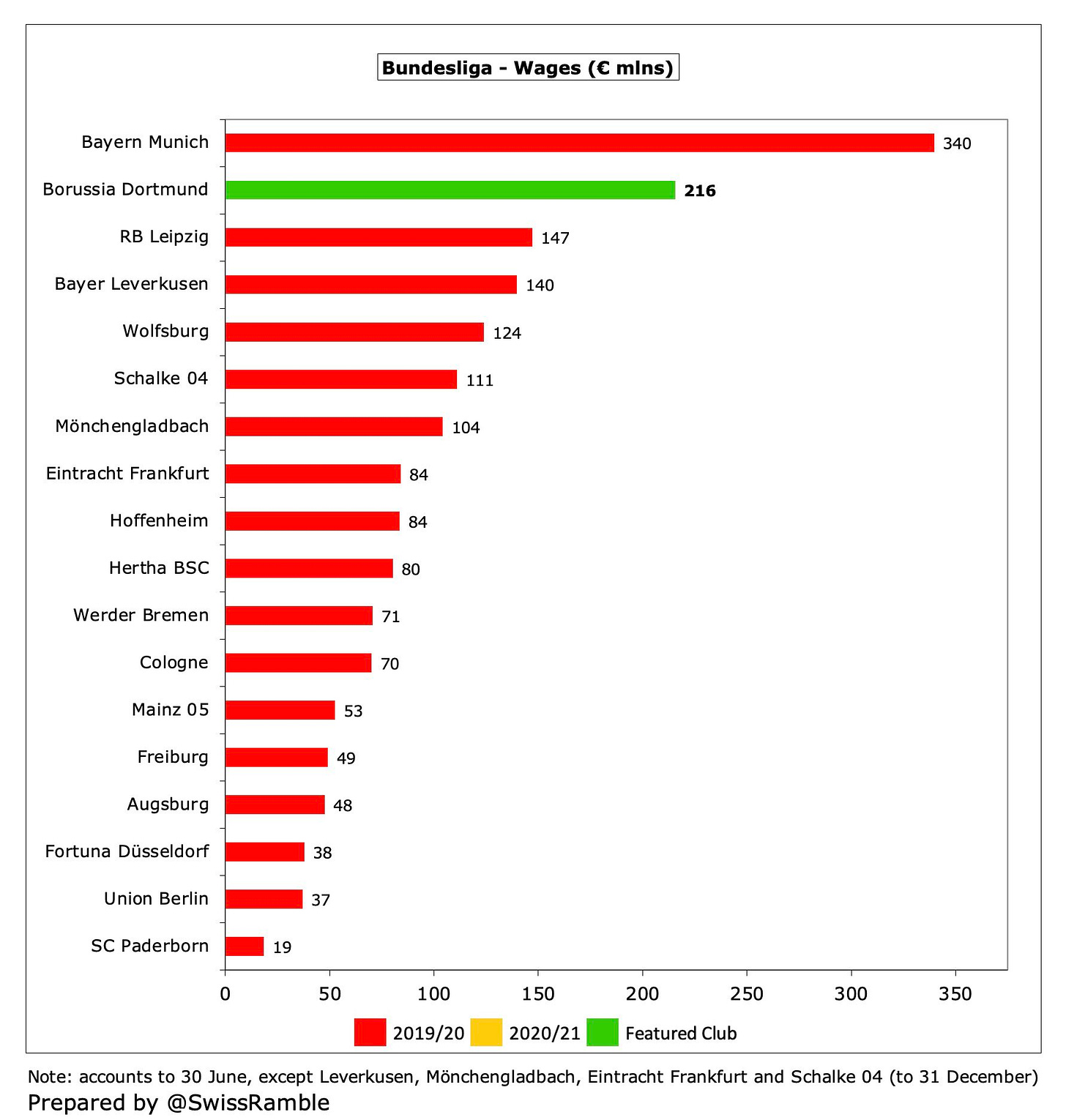SC Freiburg: The darlings of Germany
Perhaps Europe's best-run club and the most likeable to boot, SC Freiburg are having a huge season.
As we reach the end of the season, I just want to thank everyone who has read along and especially anyone who has subscribed.
There will be a few more of these over the next few weeks and I hope to continue next season but you can always nudge me along in that decision by subscribing and/or getting others to subscribe.
Anyway, onto SC Freiburg …
We look for good and evil in everything. That conflict makes things interesting, the sense of righteousness makes any competition more meaningful. And we project our own beliefs or feelings or thoughts onto things in order to tell ourselves that they’re really is an obvious dichotomy of good versus bad, right versus wrong, in pretty much any conflict.
But sometimes there just so obviously, in black and white, are things that are good. Right?
SC Freiburg certainly are. Or, as the ever-modest Christian Streich put it back in 2013:
“We’re not completely unsexy. Well, I’m relatively unsexy, I’ll admit that, but I mean the club.”
Streich was bang on the money then, a couple of years into his tenure as the club’s head coach, and what he said at the time rings even truer now he has been in the position for over a decade.
The 56-year-old talks politics, social change, climate issues in his press conferences and in the dressing room with his players. Nobody in the sport is as eminently likeable. For more on Streich the man, look no further than this collection of quotes courtesy of Felix Tamsut.
“A club doesn’t belong to a person. The club belongs to the people, the members, that identify with it.” – Christian Streich
Streich the coach is someone who demands, and extracts, the best out of his players. He admitted earlier this season that he takes at least six hours per game to carry out his own opposition analysis, watching tapes of upcoming opponents so that he can cut videos himself and knows every clip forensically before he chops it down into bitesize chunks to pass onto his players do they don’t lose interest.
Freiburg have been, above all else, uncomfortable for opposition teams to play against over the last decade. But they have also evolved. To begin with they always played in a 4-4-2, pressing aggressively man-to-man and using out-and-out wingers.
That has changed in recent years. Having upset bigger sides with their aggressive 4-4-2 for years, Freiburg have become more flexible. In 2017, Streich started to employ a back-five more often, either with a lone striker or two men up front. The 4-4-2 (or 4-4-1-1) is still used but now roughly as often as the five-man defence, with Streich adapting both to his players and to the opposition accordingly. They have grown more patient defensively, holding their shape more now than a few years ago, but remain aggressive and direct when going forward, unsettling the opposition with long-balls aimed at a narrow frontline always ready to pounce on second balls.
Oh, and they are sensational from dead ball situations, creating the most shots (87) and scoring the second-most goals (11) from set-pieces this season. Streich said last week that they don’t practice them more than other teams but that’s hard to believe after he said “teams who are bad in that area are often near the bottom of the league, being bad there is not allowed,” just last year. This is the third year in a row Freiburg have been in the top two in the league for shots created from dead balls, having been nowhere close to that level in the seasons before.
That’s just another way Streich has evolved and adapted to remains one of the finest coaches in the league. It’s no wonder Freiburg — one of Germany’s smartest clubs — has him as their coach and even stuck with him after relegation in 2015. Most clubs would have moved on from the coach, who led them to Europe for the first time in their history two years earlier, upon relegation but Freiburg stuck with their man. He brought them back up at the first time of asking, he took them back into Europe a year later, and they will return for a third crack of the whip in 2022/23: within three weeks, they will know if they are in the Champions League (they are currently in fourth) and how their first ever German cup final turned out.
And they’ve done it all while following a path of stability. Not just in the dugout, sticking with Streich, who has also stuck with them, and not just off the field, after moving into a new stadium earlier this season, but also everywhere in between.
The pandemic saw almost every club in Germany record a loss for 2019/20, but not Freiburg. They were joined by super-rich Bayern, billionaire-funded clubs like RB Leipzig and TSG Hoffenheim, US-funded FC Augsburg and shoestring budget SC Paderborn.
Naturally, all of this achievement has come with them discovering and nurturing players rather than buying them ready-made and well-known.
How else could this modest wage budget (also @SwissRamble) and the relative overperformance be explained?
There may not be a better academy anywhere in Germany. The work done not just at academy level, but then at every step up to the first team, is exemplary.
Since 2009, the likes of Oliver Baumann, Daniel Caligiuri, Ömer Toprak, Nicolas Höfler, Jonathan Schmid, Alexander Schwolow, Oliver Sorg, Matthias Ginter, Immanuel Höhn, Christian Günter, Sebastian Kerk, Christopher Jullien, Maximiilian Philipp, Caleb Stanko and Keven and Nico Schlotterbeck have graduated into the first team.
They have gone on to make 1,242 league appearances for the club between them. Noah Weißhaupt and Kevin Schade are the latest, with a combined 31 Bundesliga appearances between them this season.
The players from that group who have been moved on have, collectively, brought in €63.75m in transfer fees. But Freiburg don’t waste that money when it comes in because they have the scouting department to match their youth team.
Freiburg identify and sign lesser-known or less popular players — like Robin Koch, Çağlar Söyüncü and Luca Waldschmidt — before selling them on for huge profits.
In total, SCF have made a transfer profit of over €49m over the last 10 years, and that’s before the already confirmed €20m transfer of Nico Schlotterbeck to Dortmund is added this summer.
And life is, simply, good at the club, in the area, and with Streich. After Vincenzo Grifo and Jonathan Schmid, Matthias Ginter became the latest player to agree to a return this week having been linked with a switch to the likes of Bayern Munich and Inter as his Borussia Mönchengladbach contract ran down.




Schlotterbeck’s replacement is one of huge talent and experience, and he arrives on a free transfer because he wants to play for Freiburg and Christian Streich again.
And why wouldn’t he?




